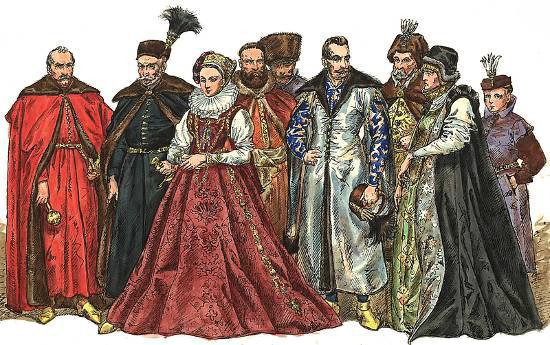“Madam, it is the hardest thing in the world to be in love, and yet attend to business. A gentleman asked me this morning, ‘What news from Lisbon?’ and I answered, ‘She is exquisitely handsome.'” — Richard Steele
Strange Weather
An optical illusion or mirage was seen by three or four farmers a few miles from this city a few days since, the appearance of which no one is able philosophically to account for. The facts are these: A gentleman, while plowing in a field with several others, about 7 P.M., happened to glance toward the sky, which was cloudless, and saw apparently, about half a mile off in a westerly direction, an opaque substance, resembling a white horse, with head, neck, limbs, and tail clearly defined, swimming in the clear atmosphere. It appeared to be moving its limbs as if engaged in swimming, moving its head from side to side, always ascending at an angle of about 45°. He rubbed his eyes to convince himself that he was not dreaming, and looked again; but there it still was, still apparently swimming and ascending in ether. He called to the men, about 100 yards off, and told them to look up, and tell him what they saw. They declared they saw a white horse swimming in the sky, and were badly frightened. Our informant, neither superstitious nor nervous, sat down and watched the phantasm, (if we may so call it,) until is disappeared in space, always going in the same direction, and moving in the same manner. No one can account for the mirage, or illusion, except upon the uneven state of the atmosphere. Illusions of a different appearance have been seen at different times, in the same vicinity, frightening the superstitious and laughed at by the skeptical.
— Telegram from Parkersburg, W.Va., to the Cincinnati Commercial, reprinted in the New York Times, July 8, 1878
Mind Your Betters

All persons of higher °
Are proud of a long pe°
And even the masses
Of inferior classes
Unless they are misle°.
— Cyril Bibby
The Seattle God Committee
In 1962, Seattle’s Swedish Hospital began offering kidney dialysis to outpatients. Because the program could accept only 17 patients, it turned to an “admissions and policy committee” made up of largely of laypeople: a minister, a lawyer, a housewife, a labor leader, a state government official, a banker, and a surgeon.
In order to narrow the field of applicants, the committee considered whether a candidate was employed, had dependent children, was educated, had a history of achievements, and had the potential to help others. In its deliberations it would also evaluate the candidate’s personality, his personal merits, and the strengths and weaknesses of his family. “The preferred candidate was a person who had demonstrated achievement through hard work and success at his job,” wrote sociologists Renée Fox and Judith Swazey, “who went to church, joined groups, and was actively involved in community affairs.”
As word spread, observers raised questions about the ethics of the program. In spring 1963, the Seattle Times presented a picture of nine dialysis patients on its cover, with the heading “Will These People Have to Die?” A committee member protested, “We are picking guinea pigs for experimental purposes, not denying life to others.” But in 1972 Congress established federal support for anyone needing dialysis, partly in response to these concerns, and today the “Seattle experience” is remembered as a formative case in bioethics.
Rigged Latin
When entomologist Paul Marsh was given the chance to name two wasp species in the genus Heerz, he called them Heerz tooya and Heerz lukenatcha.
The International Commission on Zoological Nomenclature insists that “A zoologist should not propose a name that, when spoken, suggests a bizarre, comical, or otherwise objectionable meaning.” But a few get through. Examples:
- Vini vidivici (parrot)
- Apopyllus now (spider)
- Lalapa lusa (wasp)
- Agra vation (beetle)
- Phthiria relativitae (bee fly)
- Pison eyvae (wasp)
- Eubetia bigaulae (“you betcha by golly”) (moth)
Three mythicomyiid flies are named Pieza kake, Pieza pi, and Pieza deresistans.
In 1912 the Zoological Society of London criticized entomologist George Kirkaldy for giving a series of hemipterans the generic names Polychisme, Elachisme, Marichisme, Dolichisme, Florichisme, and Ochisme (“Polly kiss me,” “Ella kiss me,” “Mary kiss me,” “Dolly kiss me,” “Flora kiss me,” “Oh, kiss me!”). In the same spirit, in 2002 a hopeful Neal Evenhuis named a fossil mythicomyiid Carmenelectra shechisme. “The offer’s still good,” he told the Chicago Tribune in 2008. “I’ll be willing to meet her.”
Condensed Fiction

At 503 words, this is the shortest Sherlock Holmes story that Arthur Conan Doyle ever wrote. It was inscribed in a book 1.5″ high and contributed to the library of a dollhouse built for Queen Mary, the wife of George V:
How Watson Learned the Trick
Watson had been watching his companion intently ever since he had sat down to the breakfast table. Holmes happened to look up and catch his eye.
‘Well, Watson, what are you thinking about?’ he asked.
‘About you.’
‘Me?’
‘Yes, Holmes. I was thinking how superficial are these tricks of yours, and how wonderful it is that the public should continue to show interest in them.’
‘I quite agree,’ said Holmes. ‘In fact, I have a recollection that I have myself made a similar remark.’
‘Your methods,’ said Watson severely, ‘are really easily acquired.’
‘No doubt,’ Holmes answered with a smile. ‘Perhaps you will yourself give an example of this method of reasoning.’
‘With pleasure,’ said Watson. ‘I am able to say that you were greatly preoccupied when you got up this morning.’
‘Excellent!’ said Holmes. ‘How could you possibly know that?’
‘Because you are usually a very tidy man and yet you have forgotten to shave.’
‘Dear me! How very clever!’ said Holmes. ‘I had no idea, Watson, that you were so apt a pupil. Has your eagle eye detected anything more?’
‘Yes, Holmes. You have a client named Barlow, and you have not been successful with his case.’
‘Dear me, how could you know that?’
‘I saw the name outside his envelope. When you opened it you gave a groan and thrust it into your pocket with a frown on your face.’
‘Admirable! You are indeed observant. Any other points?’
‘I fear, Holmes, that you have taken to financial speculation.’
‘How could you tell that, Watson?’
‘You opened the paper, turned to the financial page, and gave a loud exclamation of interest.’
‘Well, that is very clever of you, Watson. Any more?’
‘Yes, Holmes, you have put on your black coat, instead of your dressing gown, which proves that your are expecting some important visitor at once.’
‘Anything more?’
‘I have no doubt that I could find other points, Holmes, but I only give you these few, in order to show you that there are other people in the world who can be as clever as you.’
‘And some not so clever,’ said Holmes. ‘I admit that they are few, but I am afraid, my dear Watson, that I must count you among them.’
‘What do you mean, Holmes?’
‘Well, my dear fellow, I fear your deductions have not been so happy as I should have wished.’
‘You mean that I was mistaken.’
‘Just a little that way, I fear. Let us take the points in their order: I did not shave because I have sent my razor to be sharpened. I put on my coat because I have, worse luck, an early meeting with my dentist. His name is Barlow, and the letter was to confirm the appointment. The cricket page is beside the financial one, and I turned to it to find if Surrey was holding its own against Kent. But go on, Watson, go on! It ‘s a very superficial trick, and no doubt you will soon acquire it.’
J.M. Barrie, Thomas Hardy, Rudyard Kipling, and Somerset Maugham also contributed volumes for the dollhouse, which is still on display at Windsor Castle. George Bernard Shaw declined to participate.
In a Word
mendaciloquent
adj. able to tell skilled or artful lies
Spellbound

In 1906, Teddy Roosevelt directed the government printing office to adopt revised spellings for 300 English words. Wished would become wisht, calibre caliber, and though tho. “It is not an attempt to do anything far-reaching or sudden or violent; or indeed anything very great at all,” he wrote. “It is merely an attempt to cast what slight weight can properly be cast on the side of the popular forces which are endeavoring to make our spelling a little less foolish and fantastic.”
That’s about as far as he got. The House of Representatives called on the printing office to “observe and adhere to the standard of orthography prescribed in generally accepted dictionaries of the English language.” The New York Evening Post declared “This is 2 mutch,” and the Louisville Courier-Journal opined, “Nuthing escapes Mr. Rucevelt. No subject is tu hi fr him to takl, nor tu lo for him tu notis. … He now assales the English langgwidg, constitutes himself a sort of French Academy, and will reform the spelling in a way tu soot himself.”
Roosevelt rescinded the order but continued to use the new spelling himself. “I could not by fighting have kept the new spelling in, and it was evidently worse than useless to go into an undignified contest when I was beaten,” he told Brander Matthews. But “I am mighty glad I did the thing.”
Helminthology
How do you tell a worm’s head from its tail?
Put it in a saucer of flour and wait till it coughs.
(Purportedly this is a favorite riddle of Prince Charles.)
Some Enchanted Evening
A communication in the Naturalist some time ago in regard to musical mice, prepared me for a phenomenon which recently came under my observation, which otherwise would have astonished me beyond conception. I was sitting a few evenings since, not far from a half-open closet door, when I was startled by a sound issuing from the closet, of such marvellous beauty that I at once asked my wife how Bobbie Burns (our canary) had found his way into the closet, and what could start him to singing such a queer and sweet song in the dark. I procured a light and found it to be a mouse! He had filled an over-shoe from a basket of pop-corn which had been popped and placed in the closet in the morning. Whether this rare collection of food inspired him with song I know not, but I had not the heart to disturb his corn, hoping to hear from him again. Last night his song was renewed. I approached with a subdued light and with great caution, and had the pleasure of seeing him sitting among his corn and singing his beautiful solo. I observed him without interruption for ten minutes, not over four feet from him. His song was not a chirp, but a continuous song of musical tone, a kind of to-wit-to-wee-woo-woo-wee-woo, quite varied in pitch. While observing him I took for granted that he was the common house-mouse (Mus musculus), but when he sprang from the shoe to make his escape he appeared like the prairie mouse (Hesperomys Michiganensis), a species I had not, however, observed before indoors. I have thus far failed to secure this little rodent musician, but shall continue to do all I can in the way of pop-corn to entertain him, and if his marvellous voice gives him the preëminence in mousedom which he deserves, by the aid of Natural Selection I shall presently have a chorus of mice, in which case you shall receive their first visit.
— W.O. Hiskey, Minneapolis, Minn., in American Naturalist, May 1871
